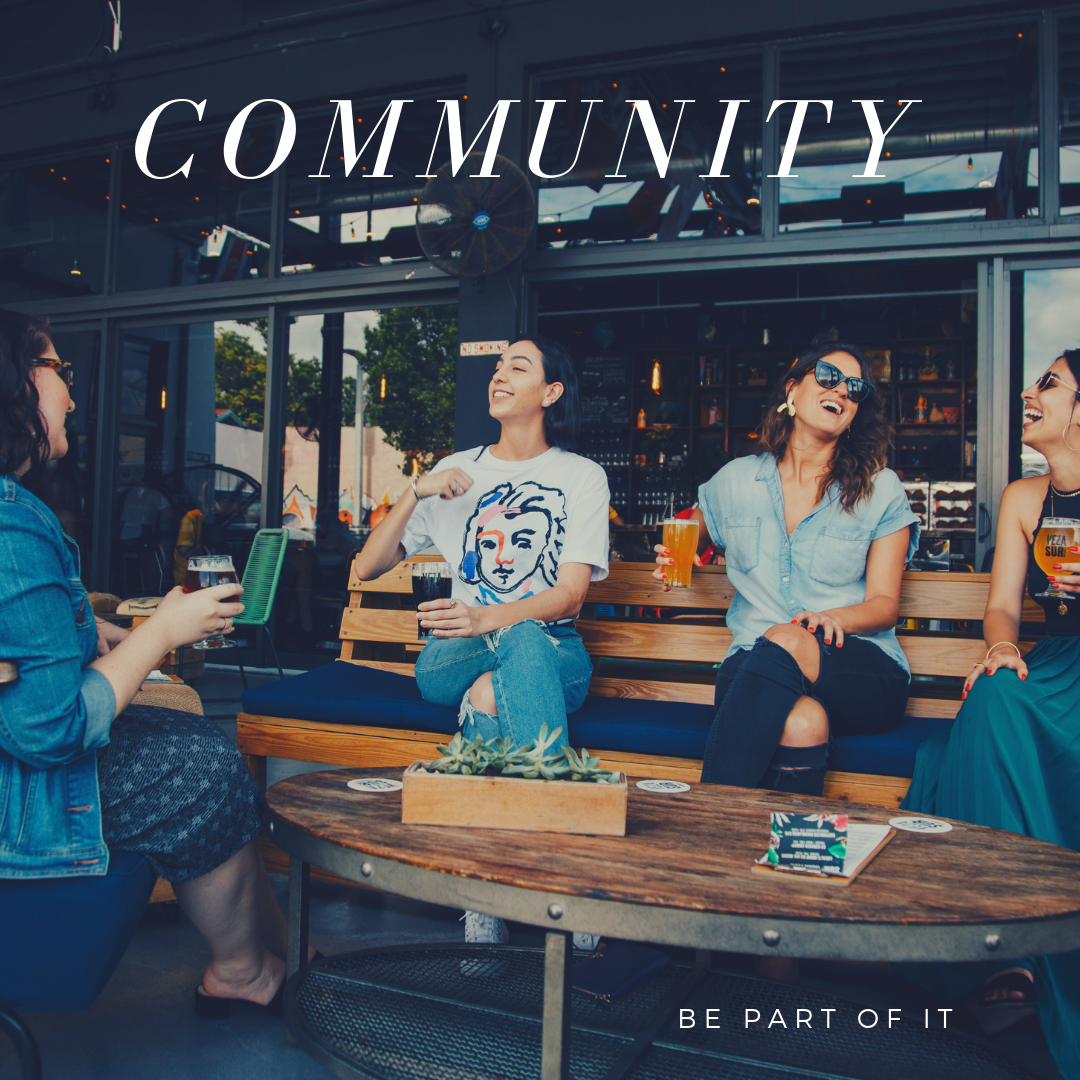Free shipping on all domestic orders over $150
Free shipping on all domestic orders over $150
Shop
Add description, images, menus and links to your mega menu
A column with no settings can be used as a spacer
Link to your collections, sales and even external links
Add up to five columns
Add description, images, menus and links to your mega menu
A column with no settings can be used as a spacer
Link to your collections, sales and even external links
Add up to five columns

Community - be part of it
March 18, 2019 3 min read 4 Comments
This past weekend I came across a interesting article by Jenny Anderson. She talked about her brother who had given up the glamour of life in New York City and settled his family in boring small town suburbia. What was this drab life of little league and kid parties, compared with the exciting urban world of museums, galleries, and theater? She admittedly looked down on his choices a bit. At least until her brother's struggle and eventual death from cancer.
What she found was that her brother had thrived in a community that he had built for himself and his family. He had built his community literally, through his work as an architect, and figuratively, through his involvement with his neighbors, their families, and their lives. It is as she moves into his world to help care for him that she realizes the power and importance of what is so absent from her own life. The friend who quietly picks up her brother' s children and feeds them at her home. The neighbor who drops off a hot meal when her sister-in-law is at the hospital. The people everywhere who come out to help before they are asked. They lend a hand, sit by her brother's bed, and offer her a reassuring hug. This is community.
We have the appearance of community through social media, and we can tell ourselves that it is real community, but it isn't. Real community only happens in real life. Research shows that people today, although they may be connected to hundreds of "friends" on Facebook, are lonelier than ever before. On-line communication offers social contact, but it does not provide us with social support humans need to survive.
Interestingly, more social engagement isn't really the fix. According to loneliness researcher, John Cacioppo, when we are lonely, "...our brains can turn in on ourselves, causing us to and retreat into self-preservation mode and be on high alert for social threats. This naturally makes people engage less and feel even more lonely." What helps, he says, is opening up, giving and receiving help, and focusing on connecting with others.
It's not easy to do - opening up, giving and receiving help, and finding a way to connect, but as knitters, we have an edge. You see, knitters are naturally nosy. In the yarn store, we'll happily ask another about her yarn, project, or pattern. And she's happy to tell us. We're happy to approach a perfect stranger and ask about the sweater she's wearing, the pattern, and the construction. Women who might be intimidating at the Starbucks or in a different social setting, are fair game at the yarn shop. We're all here, and we're all part of the club, just by being there. It's like a sorority you didn't have to rush. You belong because you choose to. Conversations about knitting move easily into other topics, and those interactions become relationships and the whole thing is community. Real community.
If you're reading this, I hope you already feel included and know that there is always a seat at the table or on the couch whenever you need a little knitting company. If you are new and wondering how to connect, stop by Wednesday evenings from 6-8 and work on your project. Or join one of our knitalongs. There will be a bunch of people doing the same project, ready to help and be helped. However, you choose to connect with us, please do, because, as you know, you are always welcome here.
~Ellen
4 Responses
Ann. (Boyer)
March 19, 2019
Thank you for a clear statement of one of life’s beautiful truths. I don’t mean the part focusing on the specialness of knitting; I won’t argue about that. I want to endorse your emphasis on the essential benefits of human support for one another. It is not remote button-pushing or coded contacts which help us, but active responsiveness
to practical needs and emotional needs. We are all healthier and happier when we open our eyes to those
around us and to the gaps in their lives. May we all become more aware….
(Signed). A cancer survivor now caring for her husband with myeloma (another cancer, of the blood).
Andrea Swierczek
March 19, 2019
True comment about approaching people about knitting. I was on a plane to San Antonio last week and the woman that sat next to me was a knitter in her late 70’s, we knitted and chatted the whole flight… almost 4 hrs! It was fun and interesting to talk to her. On the way home, I sat next to a millennial that plugged in, we hardly spoke a word.
Anonymous
March 19, 2019
Thanks Ellen to you, Jenny, Ginny and Mary for always making me feel welcome. It means more than I can express. You are and continue to be my sanity….BIG HUGS to each of you!
XOXO
Chris


Duffy
March 22, 2019
Very well put, Ellen, as always! Youall don’t just sell yarn, you provide an atmosphere in which we can experience a true plethora of patterns, knni-a-longs, classes et al. Duffy PS Thanks!!!!